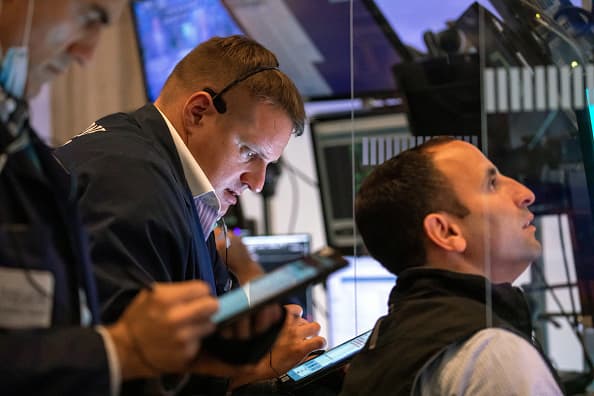SPACs are getting a much-needed reality check after investors and regulators grow wary of the Wall Street craze, and the majority of deals could have a hard time surviving with time running out.
Once a sure-fire way to bet on an IPO pop, blank-check deals are now experiencing a market washout with the vast majority of new issues dipping below their debut price. Ninety-seven percent of more than 300 pre-merger SPAC deals are now trading below their key $10 offer price, according to a CNBC analysis of SPAC Research data.
Most of the SPACs are trading for less than the cash raised in their IPOs amid shareholder redemptions and cooling demand. Meanwhile, they’re up against a deadline to find a target to merge with in a crowded market. If the SPACs fail to complete a deal within a timeframe, they will liquidate and return capital to investors minus expenses.
“It’s clear not all SPACs are created equal and the market is ripe for consolidation,” said Chris Conforti, head of Altimeter Capital Markets Platform. “I’m hopeful that over time the market consolidates just like private equity, venture capital, and crossover investing did where there are a handful of high-quality regular sponsor partners who can help strong companies go public this way.”
Many saw the burst of the bubble coming as the industry had grown too far, too fast in a market full of speculation. SPACs, as an IPO alternative, attracted massive amounts of capital from investors hoping to get in early on the next Tesla. However, the reality is that small-time investors often miss out on long-term gains, while insiders are able to get rich sometimes at the expense of shareholders.
SPACs stand for special purpose acquisition companies, which raise capital in an IPO and use the cash to merge with a private company and take it public, usually within two years. SPACs are typically priced at a nominal $10 per unit, and unlike a traditional IPO, they are not priced based on a valuation of an existing business.
During the record first quarter, the SPAC market saw 89 new deals with $28.6 billion capital raised per month, and now the number tumbled to just 9 deals a month with $1.6 billion funds since April, according to data from Bespoke Investment Group.
“Regulatory and legal concerns continue to cloud the issuance outlook,” David Kostin, head of U.S. equity strategy at Goldman Sachs, said in a note. “SPAC returns have been weak, especially following deal closure.”
‘Ultimately go away’
Increased scrutiny on the market has brought to light some SPAC features that are unfair to shareholders, especially retail investors.
Last week, Elizabeth Warren and other Senate Democrats called out some of the biggest names behind SPACs, including Chamath Palihapitiya, questioning the “misaligned incentives between SPACs’ creators and early investors on the one hand, and retail investors on the other,” they said in a letter.
SPACs tend to have an outsized benefit for sponsors. Blank-check company sponsors are paid so-called “promote fees,” which typically entitle them to 20% of the total shares outstanding following the IPO for free or at a big discount. This reward usually results in immediate dilution for the target-company shareholders.
Meanwhile, most SPAC sponsors refrain from investing in the companies they take public and can quickly flip their sponsor promote shares regardless of the short- or long-term success of the company, according to Conforti.
“We expect that the vast majority of these types of sponsors and market activity will ultimately go away as company executives and boards demand more aligned incentives,” Conforti said.
In April, Altimeter announced its Altimeter Growth Corp. will merge with Southeast Asia’s ride-hailing giant Grab in a deal that values the company at $39.6 billion — one of the largest blank-check mergers to date.
The Grab deal has a three-year lock up on sponsor promote share, while Altimeter Capital Management put up a direct $750 million investment as the largest PIPE investor.
— CNBC’s Nate Rattner contributed to this article.
